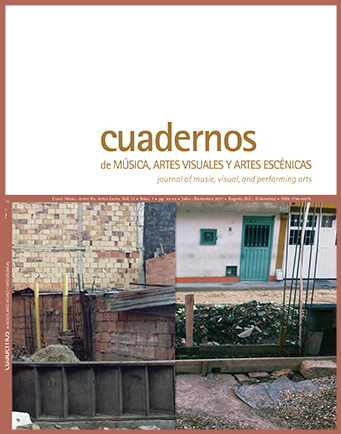Abstract
En “Blast at Ballet: A Corrective for the American Audience” (1937), Lincoln Kirstein explicaba su proyecto de creación de un ballet “americano” y la “conspiración” que frenaba su avance; esto es, el éxito que los herederos de los emblemáticos Ballets Russes cosechaban, con la complicidad de managers, crítica y público estadounidenses. El objetivo de este artículo consiste en analizar el discurso estético e ideológico de Kirstein en relación con el ballet ruso en los años previos a la Guerra Fría y su mirada utilitarista hacia América Latina en un contexto plenamente imbuido de la política del buen vecino de Roosevelt. De este modo, a partir del manejo de fuentes prácticamente desconocidas fuera del ámbito anglosajón, como el citado panfleto o los documentos de la gira de la American Ballet Caravan por América Latina (1941), se mostrarán las bases ideológicas del sueño americano de Kirstein y las circunstancias políticas en las que se gestó.
This journal is registered under a Creative Commons Attribution 4.0 International Public License. Thus, this work may be reproduced, distributed, and publicly shared in digital format, as long as the names of the authors and Pontificia Universidad Javeriana are acknowledged. Others are allowed to quote, adapt, transform, auto-archive, republish, and create based on this material, for any purpose, provided the authorship is duly acknowledged, a link to the original work is provided, and it is specified if changes have been made. Pontificia Universidad Javeriana does not hold the rights of published works and the authors are solely responsible for the contents of their works; they keep the moral, intellectual, privacy, and publicity rights.
Approving the intervention of the work (review, copy-editing, translation, layout) and the following outreach, are granted through an use license and not through an assignment of rights. This means the journal and Pontificia Universidad Javeriana cannot be held responsible for any ethical malpractice by the authors. As a consequence of the protection granted by the use license, the journal is able to publish retractions or to correct information already published. Publishing contents in this journal does not generate royalties for contributors.


